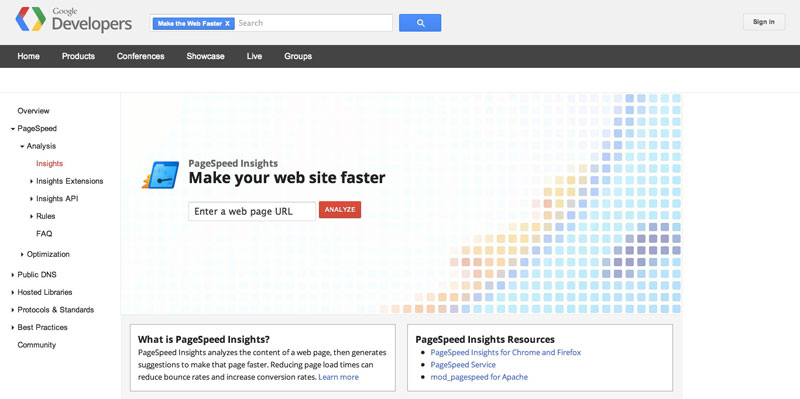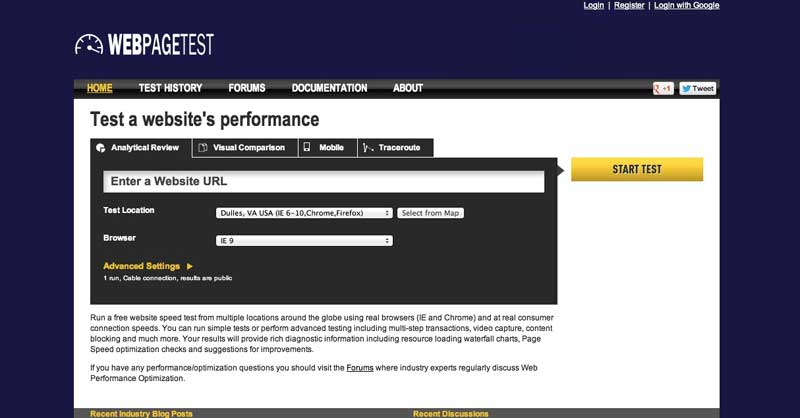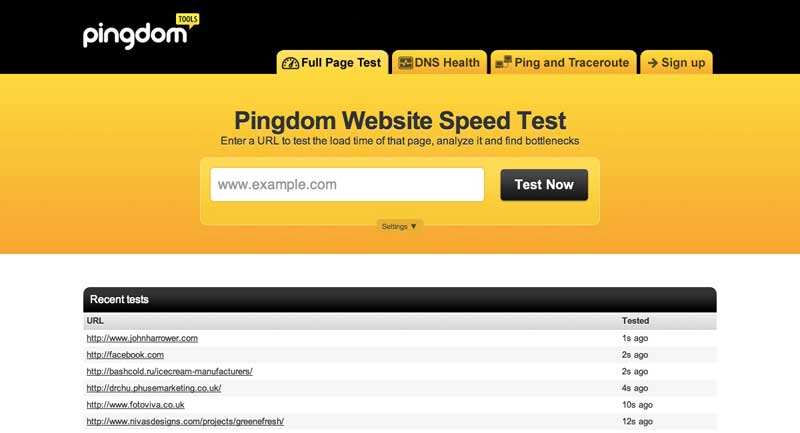How Fast/Slow Is Your WordPress Site?
How many times have you clicked through to a website that takes forever to load? First impressions count, and if your website isn’t up to speed, you’re basically shooting yourself in the foot from the get-go. As countless studies have shown, people are less likely to revisit slow websites and, worse still, many people won’t even wait for slow websites to load at all: they’ll simply get whatever they’re looking for elsewhere. A fast-loading website, on the other hand, not only pleases its visitors (making them more likely to return), it also converts better – allowing you to make the most of your online traffic. So how can you assess the speed of your website? And perhaps more importantly: should you find it’s not up to snuff, what can you do to speed it up? Luckily, there are heaps of extremely handy online tools aimed at helping you answer these two very important questions – here’s a few favorites:
GTmetrix
A personal favorite, GTmetrix uses both Yahoo’s YSlow and Google’s PageSpeed (more on these below) to evaluate your website’s performance, giving you a percentage grade for each of these two tools and loads of easy-to-understand information on different things to focus on in order to shave those seconds/milliseconds off.
PageSpeed Insights
Rather than giving a solid indication of how many seconds it takes to load your site, Google’s PageSpeed Insights tool produces a score that indicates how much faster a page could be. A high score indicates little room for improvement, while a lower score indicates more room for improvement. It then goes on to list a number of specific suggestions to improve things – in-depth explanations of which can be found here.
WebPagetest
Originally developed for AOL, WebPagetest is now an open-source project developed and supported primarily by Google. It may look a little dated in terms of design, but don’t be fooled, because this particular testing site contains oodles of analyzing capability. Plus, unlike Google’s very own PageSpeed Insights, it includes an extremely interesting feature that allows users to actually choose countries (from a predefined selection) from which to test from – which can be extremely helpful if you’re interested in seeing fast/slow you website loads across the world.
pingdom
Pingdom is an extremely well-known website monitoring service that also offers free speed tests via their Pingdom Website Speed Tests tool – a tool that is primarily concerned with helping webmasters and web developers find bottlenecks (through a waterfall display of load times for each web object) that may be hindering the performance of their websites. Additionally, it also gives an easy-to-understand summary that shows the number of requests, an overall page size (in MB) and an actual load time in seconds, plus there’s also a section that gives performance grades for factors like browser caching, etc.
YSlow
The final tool in our list, Yahoo’s YSlow, is a little different to the others. Rather than being immediately accessible as an independently hosted service, YSlow is a piece of software that plugs into everybody’s favorite web development tool: firebug (something we mean to cover in more depth at a later date). In short, YSlow analyses 23 testable factors from a set of 34 rules that affect web page performance (according to Yahoo’s web performance team). For a complete list of these 23 factors, check out YSlow’s official Web Performance Best Practices.
Varying results and suggestions
The truth is that each of these tools will almost certainly produce varying measurements of your website’s speed and varying suggestions about how to go about improving it – and because there’s so many variables, it’s even possible that numerous tests with the same tool will give varying load speed results. However, although there will invariably be a lot of overlap in terms of suggestions, running tests with each tool may also yield new insights into how to go about why things aren’t as fast at they could be – and into about how best to go improving them. So run numerous tests, take heed of every nugget of information these tools produce and, at the very least, consider addressing each tool’s main suggestions.
Are you familiar with any or all of these tools? Which ones have you found to be the most useful?










All comments are held for moderation. We'll only publish comments that are on topic and adhere to our Commenting Policy.